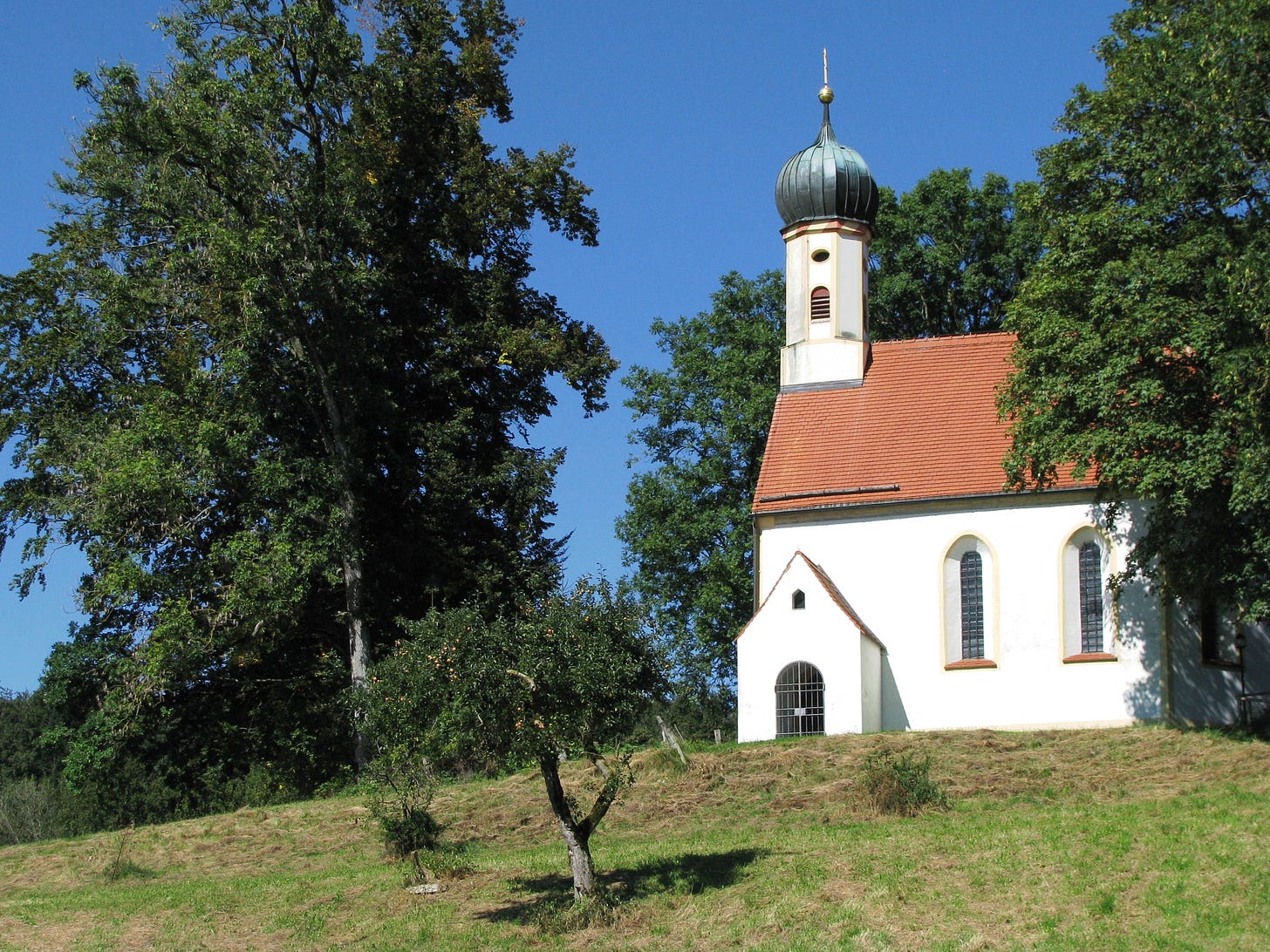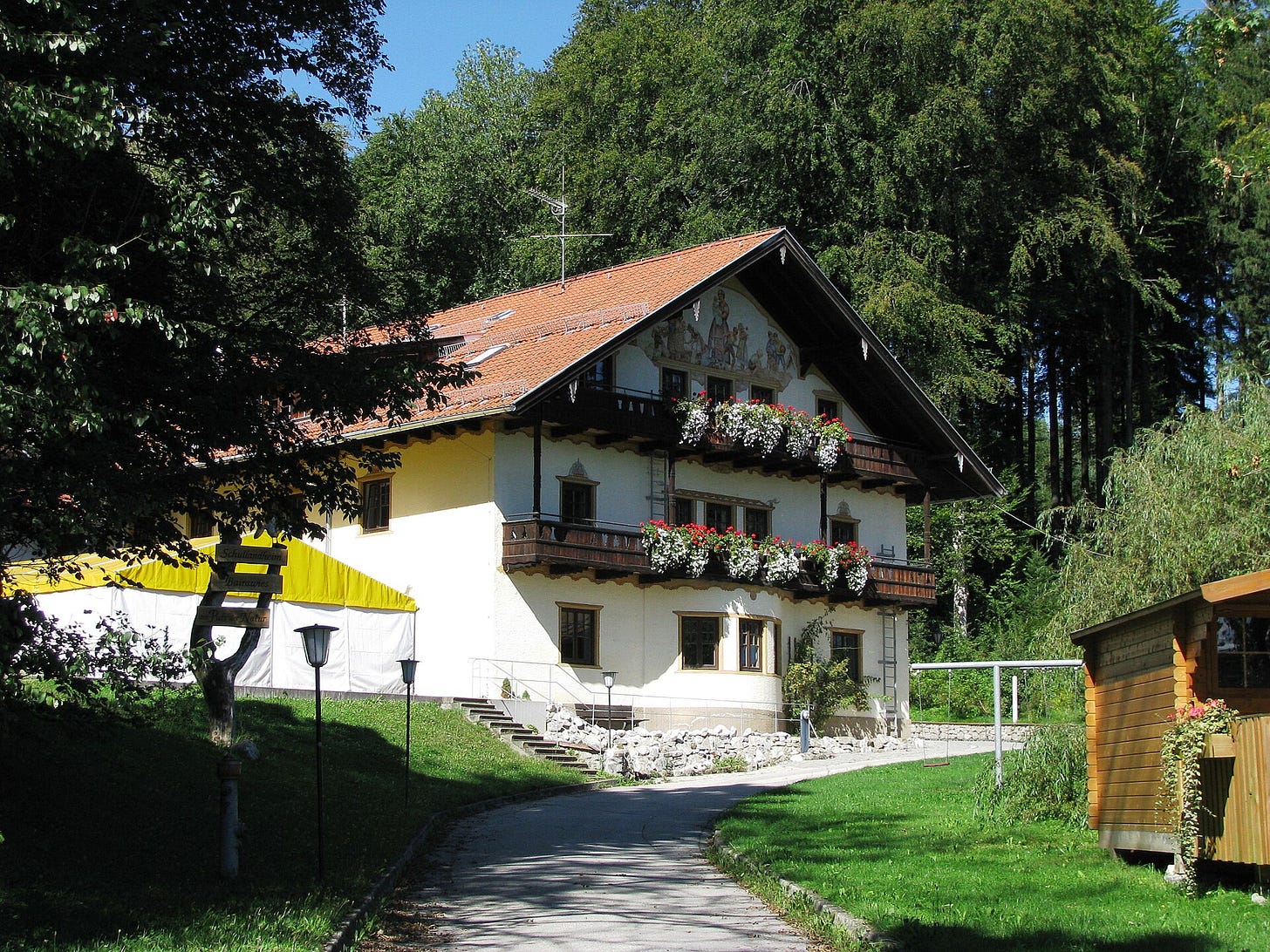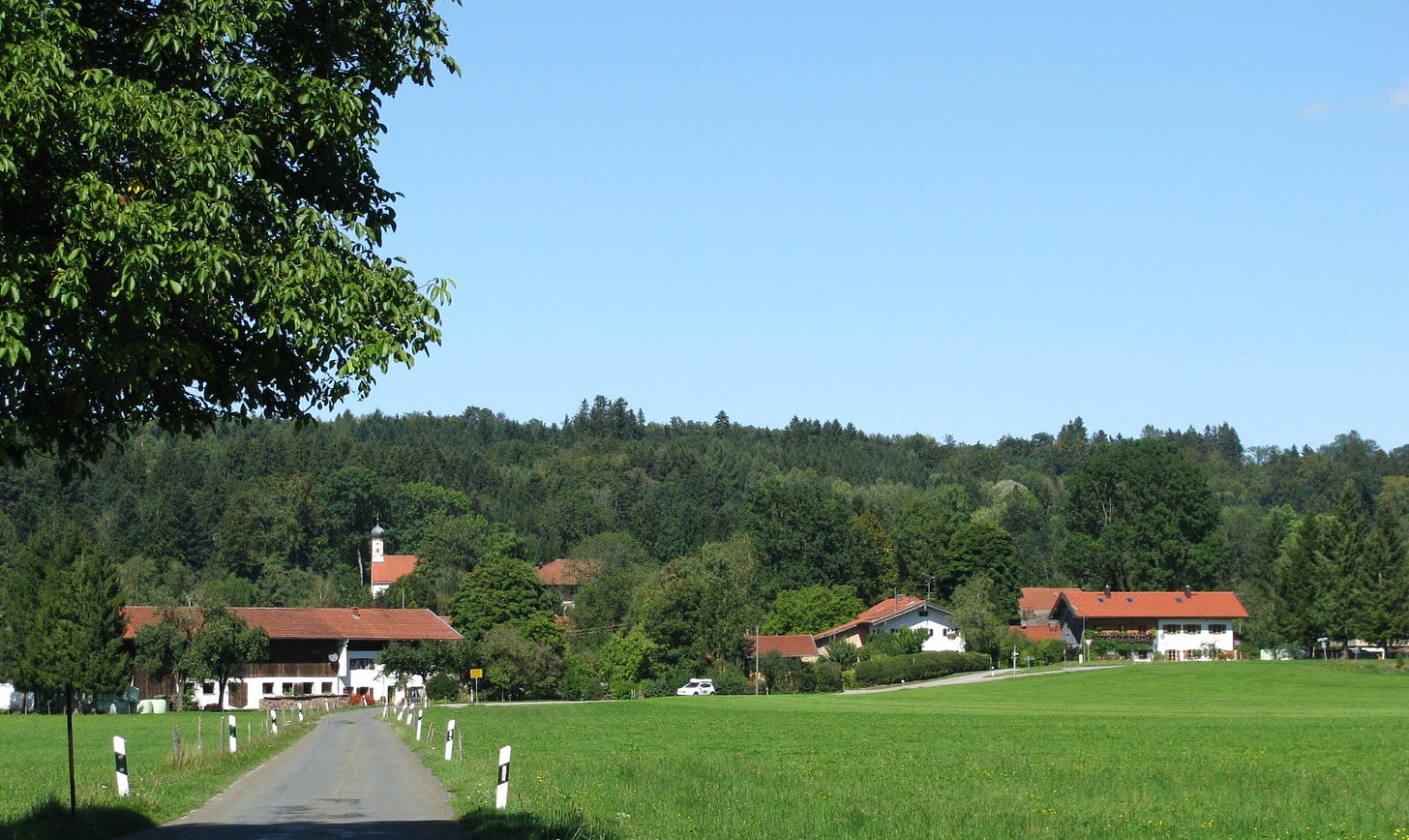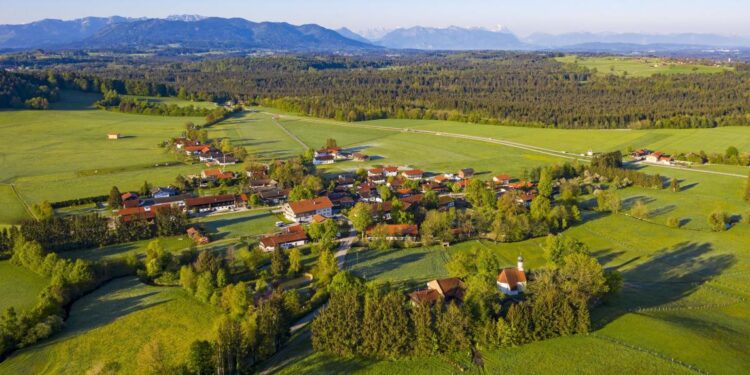Mass migration, as we know, causes a wealth of problems.
While migrants are best known for their occasional terrorism and their penchant for perpetrating violent crimes against the locals, they have a wide range of more quotidian and therefore more significant drawbacks. Migrants cost taxpayers billions of dollars; they commit petty crimes like theft far above the rates of Europeans, and in general, they’re poorly calibrated for life in Western society. They are terrible neighbours who catcall women, bother shopkeepers and vandalise public facilities. They make natives more uncomfortable and everyday life more unpleasant.
I can attest to all of this personally. During the height of mass vaccination insanity, I fled my small Munich apartment and the suffocating urban virus paranoia for a place in the upper Bavarian countryside. I moved to a small, idyllic village in the south, with rolling cow pastures as far as the eye can see. I found a new house on the banks of a cheerful stream; most of my neighbours spoke Bavarian. Around the corner from my new home was the local school, which I thought would be nothing but an advantage. It might help with the resale value, and, anyway, the schoolchildren were a cheerful presence every morning.
I could not have been more wrong. When the pandemic restrictions were lifted and the migration wave reasserted itself, the school became a curse. District authorities, desperate to find housing for our new guests, converted the school athletic facilities into refugee housing. Just like that, my village became host to a constantly rotating coterie of unpleasant young men. As I have discovered, it does not take very many refugees to totally change the atmosphere and the demographics of a small town like the one I live in. Our migrants find the silence and order of the countryside offensive, and they do everything in their power to upset it. They mark their territory by playing loud music from cheap, tinny speakers late into the night, they occupy the parks where kids used to play football, smoking and drinking petrol station liquor. They leave trash everywhere. This is a nuisance that you can never fully escape. You might move again, but who is to say when the next real estate investor won’t lease his property to the state, bringing the migrants to your new refuge in turn.
This brings us to Bairawies, a small hamlet in upper Bavaria that resembles my own village in many ways. People have been living here since the Middle Ages; there is an idyllic chapel dedicated to St. Coloman…

…a traditional Schullandheim from the 1930s…

…and, otherwise, various modest houses and farm buildings:

Bairawies has survived the upsets of modernity largely unchanged, but mass migration is a different kind of crisis.
For months now, a property developer named Christoph Hertwig has been threatening to open a container facility to house 128 migrants in this village with a population of 280 people. He’s leased a 6,000-square-metre plot in Bairawies from somebody in nearby Wolfratshausen, and if he can only secure the necessary permissions to station his shipping containers there, he can collect a tidy profit by leasing the facility to the district. Overnight, Bairawies would see its population swell by 46%. Nearly one in three residents would be foreigners – a ratio not seen even in cities like Berlin.
Nobody in Bairawies thinks that this is a good idea, of course, but planning decisions like these are not in the hands of ordinary people. In the Federal Republic, you can change your officially recognised gender once every year, but you cannot vote against the mass resettlement of “refugees” in your ancestral home. All of our notional freedom has been decanted into the most irrelevant and trivial cultural matters, and we have lost all control over the things that really matter.
Municipal planners unanimously rejected Hertwig’s plans for a container facility last October, but this doesn’t mean very much. The Bavarian state government has granted higher-level district authorities in Bad Tölz-Wolfratshausen the power to override local decisions when it comes to opening refugee facilities, and there is a substantial likelihood that they’ll exercise their powers in this case. They are, after all, under enormous pressure to find beds for 100 new asylum seekers every month. As the Bavarian government has cut funding for refugee accommodations, larger, centralised blights like the one planned for Bairawies have become the preferred solution. The district administrator, Josef Niedermaier, ominously praised the planned facility back in October. This, too, makes sense: locating migrant facilities in small rural backwaters promises to alienate the smallest number of prospective voters and to keep migration scandals, like the Tunisian migrants terrorising Regensburg, as much as possible out of view.
Alas, the residents of Bairawies are not entirely innocent in all of this. Like many Germans, they profess to support migration in general, while rejecting it merely in its particulars and when it most affects them. They’ve founded a political association to defend their village. Last Sunday, 170 people turned up to demonstrate against the container facility specifically, while piously expressing their support for asylum seekers in the abstract:
Many citizens flocked to the meadow… in Bairawies on Sunday afternoon… The demonstrators put up four banners, which are to be placed on the main road after the demonstration in order to gain as much publicity as possible, organiser Wolfgang Köster explains. “280 inhabitants, 130 refugees – nothing for refugees, nothing for the village,” the banners say.
Some have brought signs with them: “For our homeland, for a fair asylum policy, against mass accommodation.” Or: “Enough is enough, we can’t do it.”… In his short speech, [Köster] rails against “the ignorance of politics”, the state government and District Administrator Josef Niedermaier… The protest in Bairawies, which was also attended by people from other districts, was a signal to those responsible. “Friends, it’s not going to work, you’re going to destroy our village”. …
The new association announced that they were collecting donations for use in a potential legal battle. “We have nothing against people seeking asylum in our country,” they said in a statement. But they find it necessary clarify to the state government and the district administrator “what madness the high number of refugees means for a small village.”
Köster, the organiser of this demonstration and the founder of the local organisation fighting the migrant pods, turns out to be a member of the Green Party. He tells reporters that he is “convinced we can help the refugees,” that “it’s difficult, it’s expensive, but it can be done”, and that providing “decent accommodation and a functioning support system are a part of it”. The migrants should simply be sent to somebody else’s village, because Bairawies is not a great place for them.
I almost hope they do dump 128 migrants in Bairawies.
This article originally appeared on Eugyppius’s Substack newsletter. You can subscribe here.











To join in with the discussion please make a donation to The Daily Sceptic.
Profanity and abuse will be removed and may lead to a permanent ban.